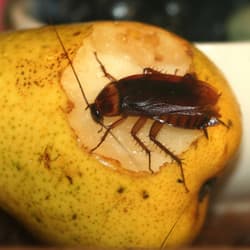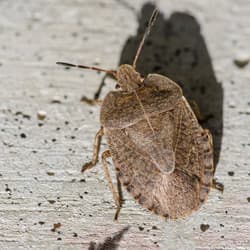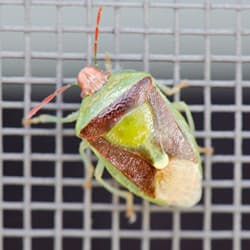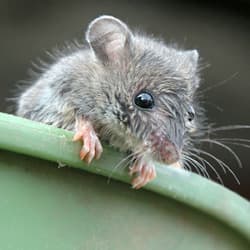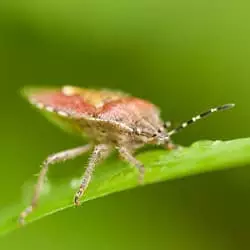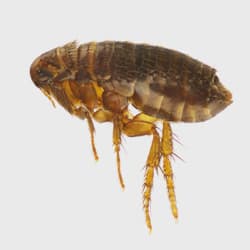We realize this is an unsavory topic. The last thing you want to think about while getting ready for some holiday cooking is cockroaches. That is unless you’re already dealing with cockroaches. If you’re already seeing a cockroach here and there, cockroaches may be “all” you’re thinking about right now. Here are a few tips to protect your holiday foods from contamination.
Cockroach Protection
-
If you’ve seen a cockroach running across your kitchen floor or zipping up your wall, there is a good chance there are many more living inside your walls, and crawling around in places you can’t see, like your silverware drawer. The last thing you want to do is use a piece of silverware that has had a cockroach crawling on it. Keep these items safe by putting silverware in plastic containers or hard plastic bags. It may be inconvenient to retrieve these items when you need them, but it could prevent harmful bacteria from getting onto foods.
-
Cockroaches love pantries. It is important to make sure your pantry is protected. If you have cockroaches digging in your trash, nibbling on rotting organic matter under your fridge or on the side of your stove, and crawling on your toilets, they will spread harmful bacteria to your pantry items when they chew through paper or cardboard protected items. Protect these items by storing them in sealed plastic containers.
-
Since cockroaches love trash, and your trash can is one of the places they will pick up bacteria, it is a good idea to buy a trash can with a lid that seals. This will keep those cockroaches from coming and going as they please.
-
When you’re sleeping, cockroaches will be walking around on everything. Be sure to clean all food prep surfaces before you start your holiday cooking. Make sure to also clean cutting boards and dishes that will be used in the preparation of foods.
These tips can help to protect your family from the diseases and harmful bacteria that can be spread by cockroaches, but it is much better to live without cockroaches. If you live in our Tennessee service area, and you would like to get those roaches out of your home before you start your holiday cooking, we’d be happy to assist you. You can probably live with cockroaches, but you and your family will be a whole lot healthier if you don’t. Reach out to Russell’s Pest Control for complete cockroach exclusion. Our team of educated pest specialists know what is necessary to exterminate these dirty bugs and seal them out of your home.
